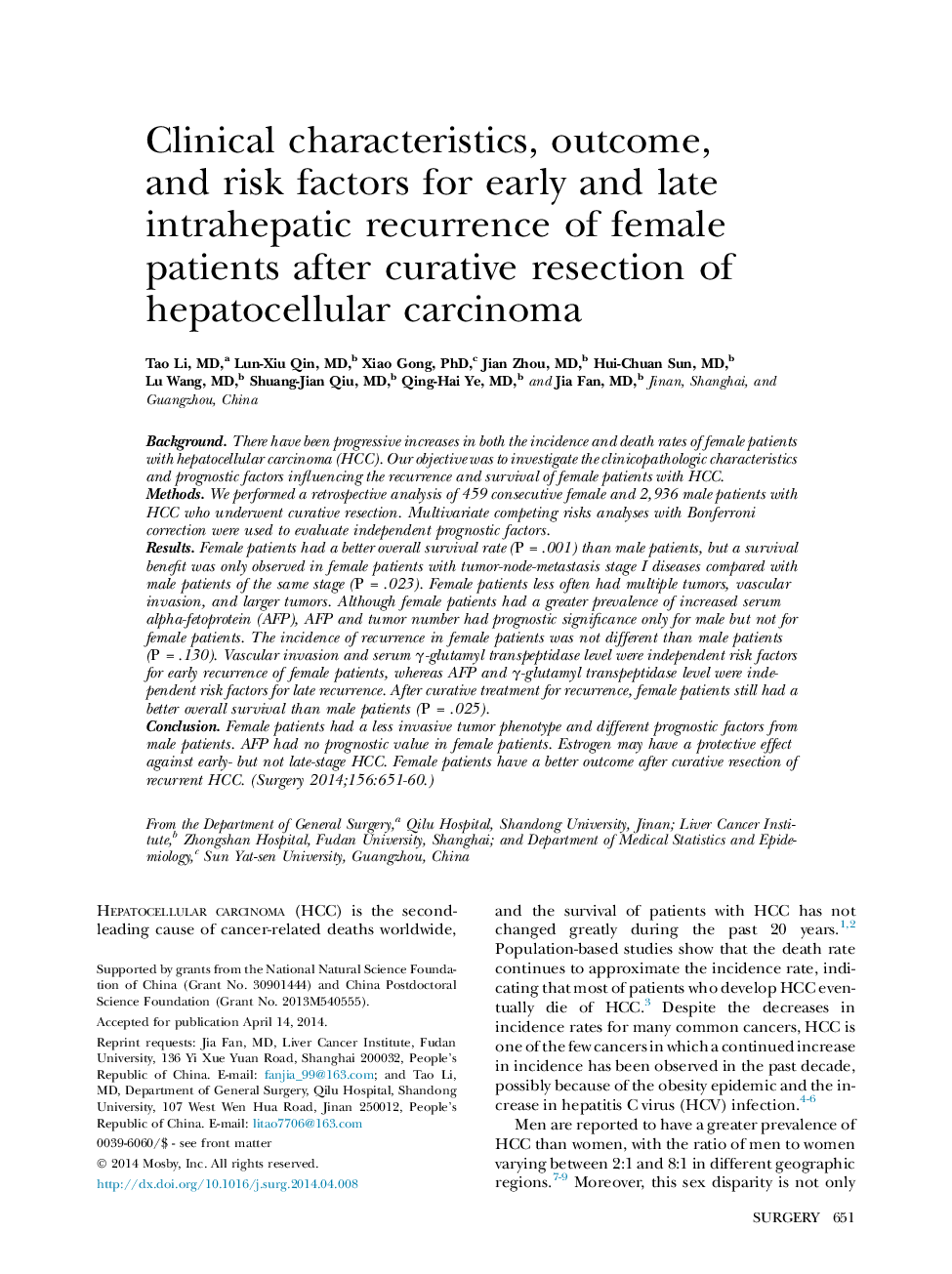| Article ID | Journal | Published Year | Pages | File Type |
|---|---|---|---|---|
| 4307137 | Surgery | 2014 | 10 Pages |
BackgroundThere have been progressive increases in both the incidence and death rates of female patients with hepatocellular carcinoma (HCC). Our objective was to investigate the clinicopathologic characteristics and prognostic factors influencing the recurrence and survival of female patients with HCC.MethodsWe performed a retrospective analysis of 459 consecutive female and 2,936 male patients with HCC who underwent curative resection. Multivariate competing risks analyses with Bonferroni correction were used to evaluate independent prognostic factors.ResultsFemale patients had a better overall survival rate (P = .001) than male patients, but a survival benefit was only observed in female patients with tumor-node-metastasis stage I diseases compared with male patients of the same stage (P = .023). Female patients less often had multiple tumors, vascular invasion, and larger tumors. Although female patients had a greater prevalence of increased serum alpha-fetoprotein (AFP), AFP and tumor number had prognostic significance only for male but not for female patients. The incidence of recurrence in female patients was not different than male patients (P = .130). Vascular invasion and serum γ-glutamyl transpeptidase level were independent risk factors for early recurrence of female patients, whereas AFP and γ-glutamyl transpeptidase level were independent risk factors for late recurrence. After curative treatment for recurrence, female patients still had a better overall survival than male patients (P = .025).ConclusionFemale patients had a less invasive tumor phenotype and different prognostic factors from male patients. AFP had no prognostic value in female patients. Estrogen may have a protective effect against early- but not late-stage HCC. Female patients have a better outcome after curative resection of recurrent HCC.
